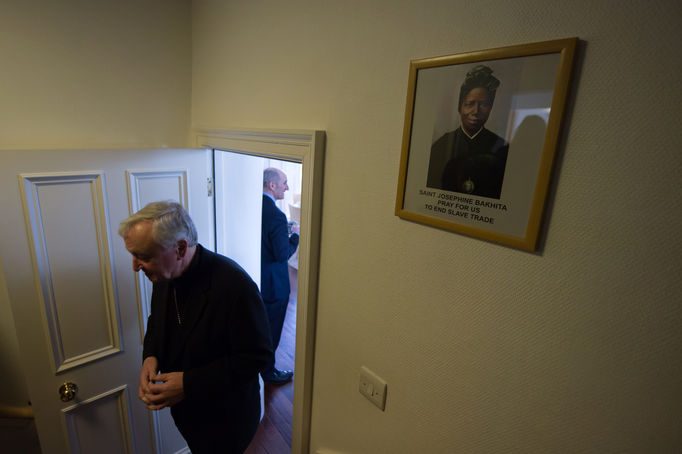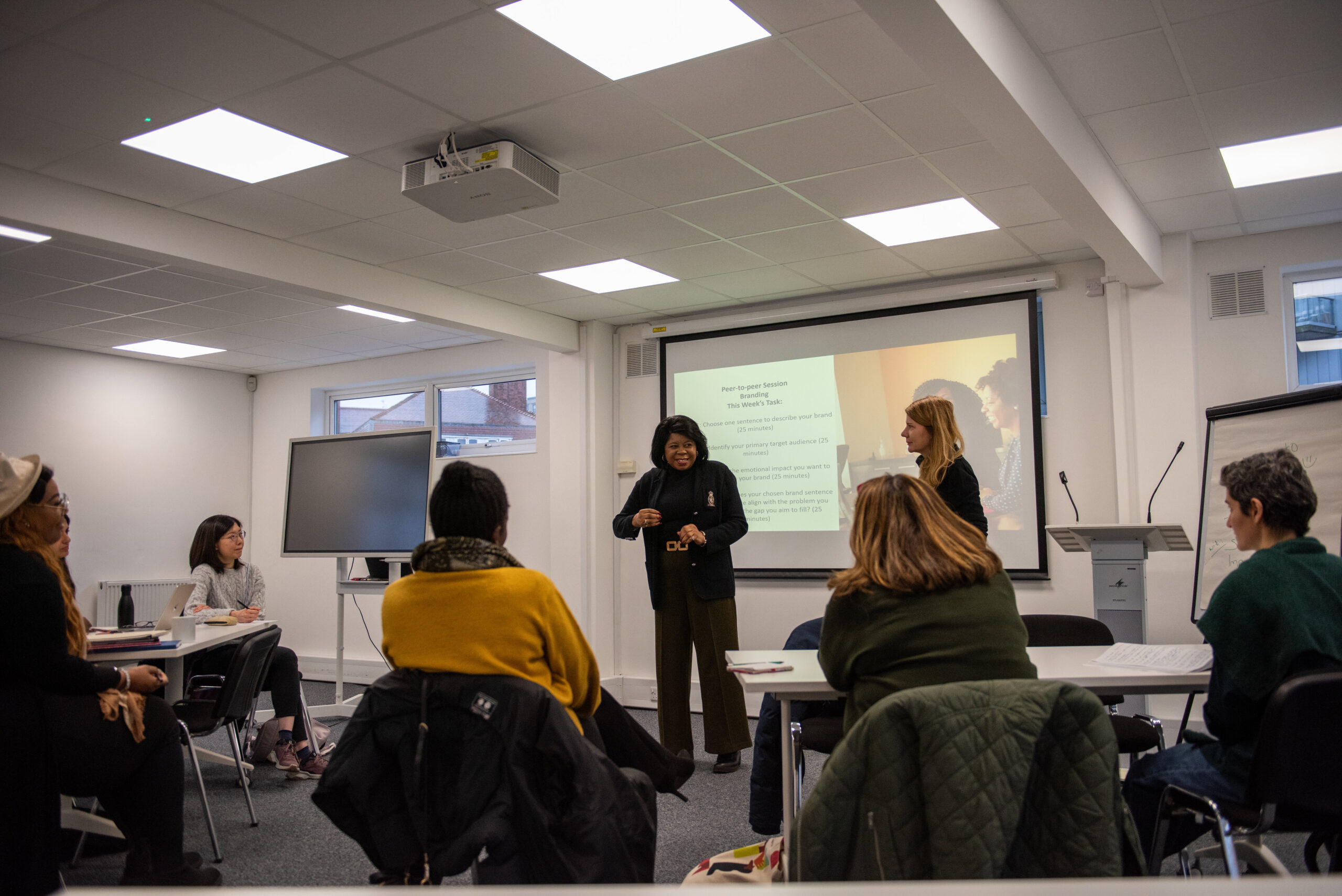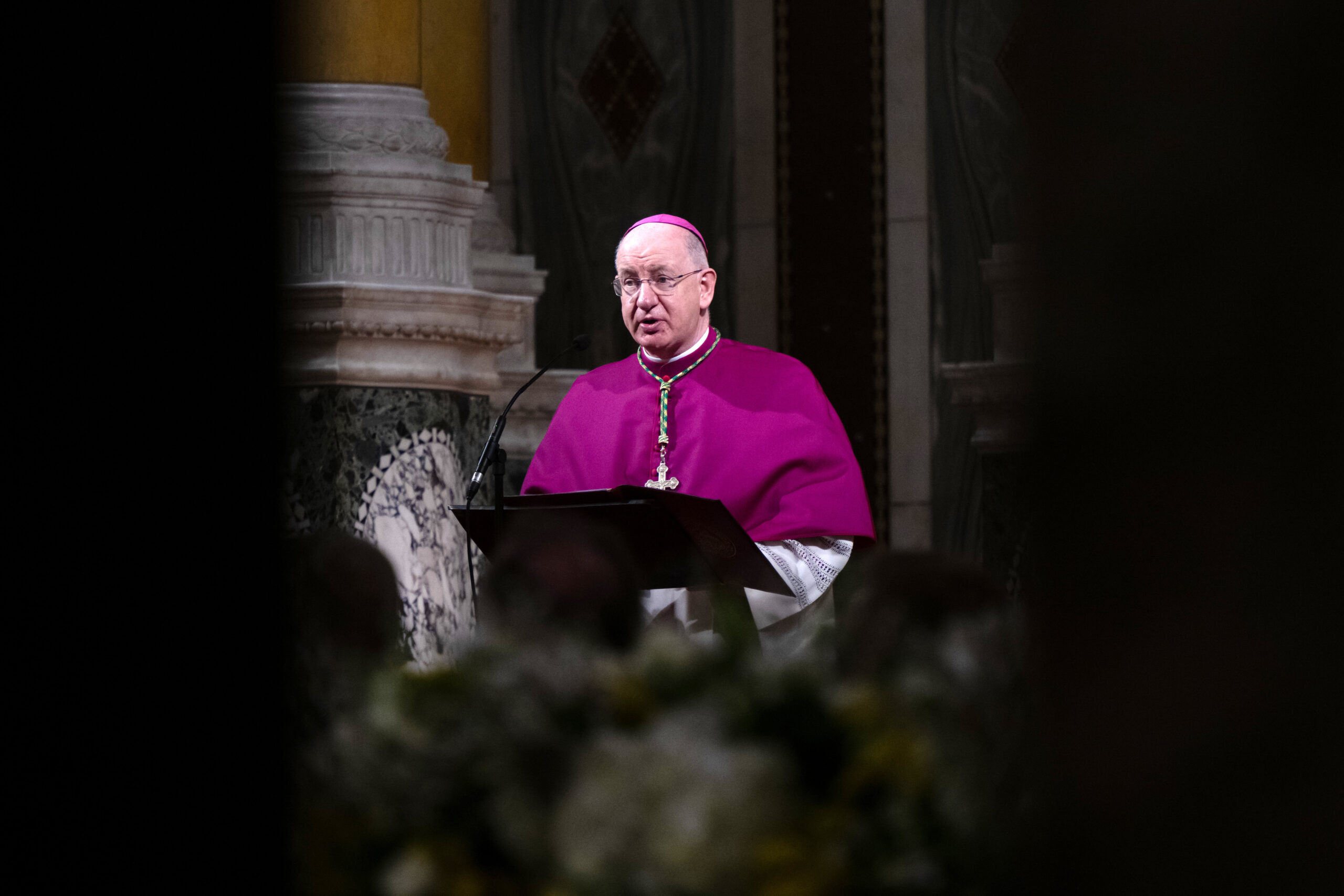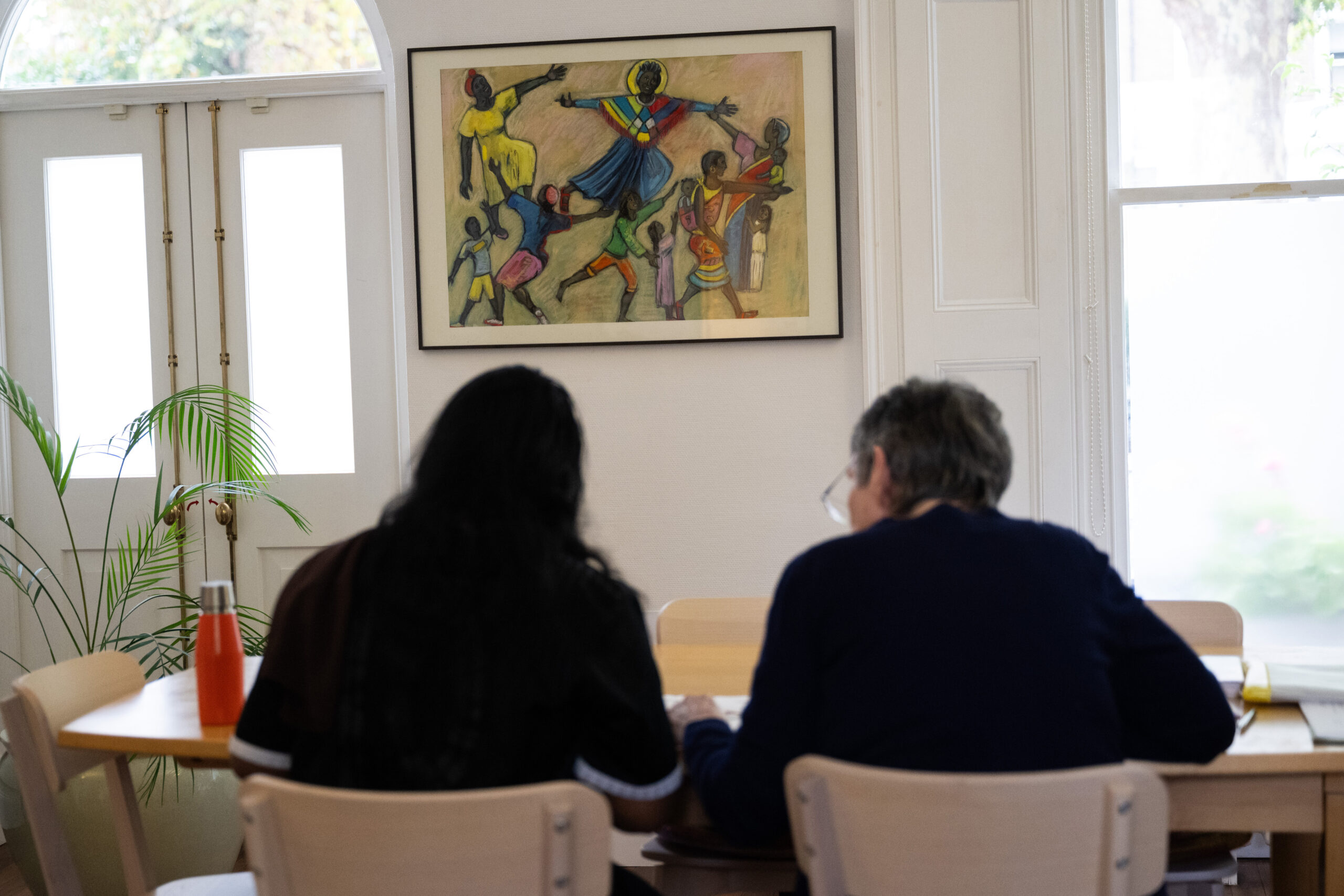
This week, Caritas Bakhita House celebrates its fifth birthday!
Opened on the 30th June 2015, the house provides women escaping human trafficking with the safety and support to allow them to begin the recovery process. Since opening, it has welcomed 123 guests (ranging from 15-70 years in age) and 11 babies, hailing from 39 different countries, all of whom are provided with the support necessary to build new futures. As Bakhita House sits outside the government’s National Referral Mechanism (NRM), they have the flexibility and resources to provide longer-term and more tailored support for the guests.
One guest, Ana*, travelled to the UK and was forced into prostitution by her husband:
‘I worked continuously, seeing many clients a night, until one night both my body and my mind felt completely broken. A police officer stopped and spoke to me; it was the first kindness I had been shown in a long time. Within an hour of being taken off the streets, the police took me to Bakhita House and I entered a different world. For the first time in ten years, I slept all night undisturbed. For the first time, I felt safe.’
At Bakhita House, Ana accessed education courses, prepared her CV and gained skills for job interviews. She went on to secure two jobs and was supported by Bakhita House in finding a new home outside of London. ‘I love my new home, my new city, my new jobs and my new beginning. I no longer feel broken.’
Another guest, Daria*, was brought to the UK to be sold into the sex trade. Language classes at Bakhita House allowed Daria to improve her English, a skill that ultimately enabled her to secure a job in a restaurant and give evidence against her trafficker. By 2019, the guests had helped secure sentences against traffickers totalling more than 100 years in prison. Nine months after arriving at Bakhita House, Daria was able to leave and begin a new, independent life.

During the pandemic, the staff at Bakhita House have continued to offer holistic support to the eight guests and three babies in residence. In response to the lockdown, the team designed a new weekly routine of activities on site, including sewing, baking, yoga, dance and gardening. Existing classes such as English, Drama Therapy and Music Therapy were moved online. Measures were also put in place for mothers to register births and for police interviews to resume in a safe and sensitive manner. These meetings were made possible through the use of a specialist interview room within the house, as well as a self-contained, external one, which allows the police to speak to potential trafficked victims, even if they are not going to stay at the house.
Sometimes it is the seemingly small things which can have a positive impact on guests’ recoveries; take the card game UNO, which has brought guests together, irrespective of the language they speak. As Karen explains:
‘It enables them to become part of a group which holds dark memories of their previous journeys but are now part of a group learning to laugh again and so share happier memories; if we can help people to laugh again we can allow them a vision of what is possible, no longer a vision of the impossible.’

Reflecting on the achievements of the project in its first five years, Karen Anstiss, Service Manager at Caritas Bakhita House, said:
‘Staff, volunteers, funders, police, Caritas Westminster, the Diocese of Westminster, we are all integral. One person does not make this work, everyone has a part to play. A jigsaw with a piece missing is of no use. Each part of our jigsaw is equally as important as another piece.
‘Most importantly, I thank the guests for their bravery and strength to move on with their lives, and for letting us share their journey.’
A former guest recently contacted Karen to express her gratitude for the support she received at Bakhita House:
‘I take this opportunity to thank you for all the support you offered me since I moved to Bakhita House in 2019. I cannot thank you enough for giving me a second chance to face the world. You took me in when my dignity had been stripped away, and I had lost hope. You reassured me that all was not gone. You gave me a roof over my head, food on the table and a smile on my face. You have walked with me all along; you have seen my worse days and my better days.
‘I no longer cover my head in order to hide my shame, but I walk with my eyes focused because you have taught me that no matter what, there is light at the end of the tunnel. I cannot forget to say special thanks to Anna who made a lot of effort to make me feel at home. She made my first ever birthday cake when I turned forty, words cannot explain how much I appreciated that.
‘God bless you all and once again thank you; continue the good work. Through you, so many women can have a second chance in life.’
Upon her canonisation in 2002, St John Paul II spoke of the house’s patron, St Josephine Bakhita, a survivor of human trafficking herself. ‘In St. Josephine Bakhita, we find a shining advocate of genuine emancipation. The history of her life inspires not passive acceptance, but the firm resolve to work effectively to free girls and women from oppression and violence, and to return them to their dignity in the full exercise of their rights.’ This has been the heart of the mission of Caritas Bakhita House these past five years and will continue to be.
You can support the work of Caritas Bakhita House at bit.ly/caritasbakhitahousedonations.
To find out more information about Caritas Bakhita House, contact caritaswestminster@rcdow.org.uk or visit www.caritaswestminster.org.uk/bakhita-house.php.
*Names of guests have been changed.




